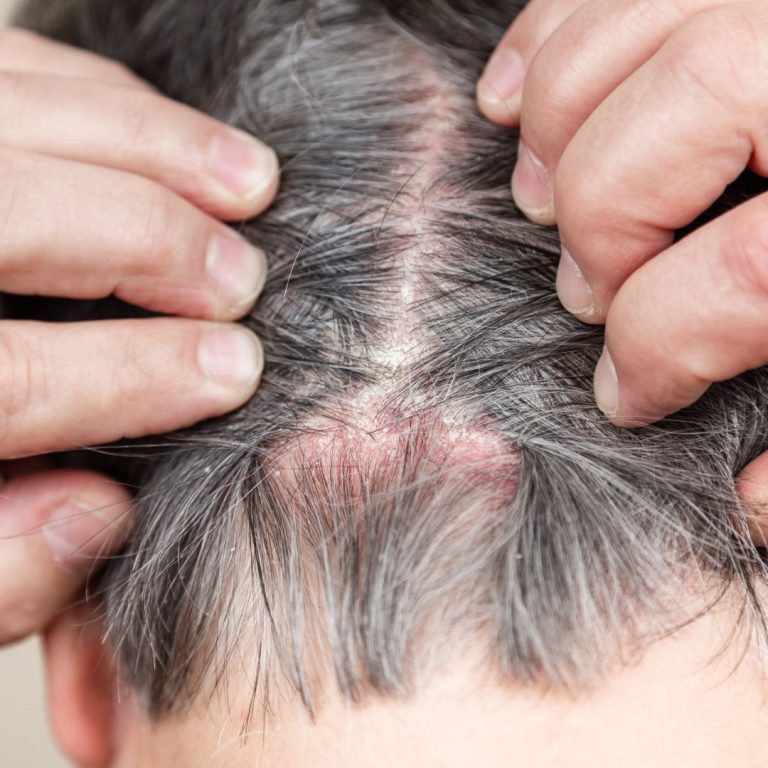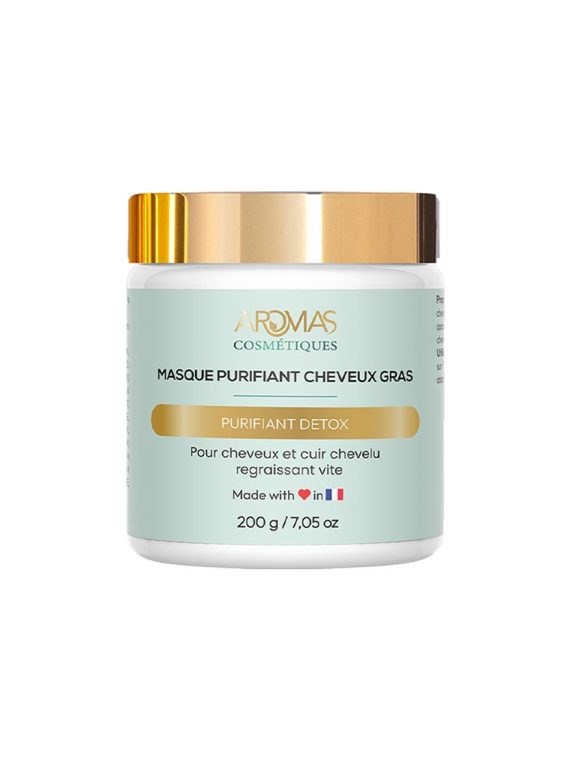What are dermatitis and psoriasis?
March 16, 2023 2023-12-28 9:45What are dermatitis and psoriasis?
What is psoriasis?

Psoriasis is a chronic autoimmune skin disease that affects approximately 2 to 3% of the world's population. It is characterized by inflammation of the skin that leads to a buildup of skin cells on the surface, causing red, scaly patches to appear.
Psoriasis plaques can develop on any part of the body, but they are often located on the elbows, knees, scalp, face, hands and feet. Symptoms of psoriasis can vary from person to person, but they generally include itching, redness, scaling, cracking, and pain or burning.
Although psoriasis is not contagious, it can have a significant impact on the quality of life of those who suffer from it, particularly if the lesions are visible and extensive. There are several treatments for psoriasis, including creams, oral medications, and injections, but there is no definitive cure.
Some key figures on psoriasis
Below are some key figures about psoriasis:
· Psoriasis affects approximately 2 to 3% of the world's population, or approximately 125 million people.
· It can appear at any age, but is most commonly diagnosed in adults aged 15 to 35.
· Psoriasis is an autoimmune disease, meaning the body's immune system attacks healthy skin cells by mistake.
· The exact causes of psoriasis are not known, but genetic and environmental factors appear to play a role.
· Psoriasis can have a significant impact on the quality of life of people who suffer from it, particularly if the lesions are large or visible.
· There are several types of psoriasis, each with its own specific characteristics and treatments.
Although there is no definitive cure for psoriasis, there are treatment options that can help reduce symptoms and improve the quality of life of those affected.
What are the different forms of psoriasis?
There are several forms of psoriasis, each with its own characteristics:
· Plaque psoriasis: This is the most common form of psoriasis. It is characterized by red, scaly patches on the skin, often on the elbows, knees, scalp, lower back and face.
· Psoriasis guttata: This form of psoriasis appears as small red spots on the skin, often on the trunk, arms and legs. It can be triggered by a bacterial or viral infection.
· Pustular psoriasis: This form of psoriasis appears as white, pus-filled pustules on the skin, often on the hands and feet. It can be painful and itchy.
· Inverse psoriasis: This form of psoriasis develops in areas where the skin is folded or rubbed, such as the armpits, groin, under the breasts, or around the genitals. It is characterized by red, smooth rather than scaly patches.
· Erythrodermic psoriasis: This is a rare and serious form of psoriasis that affects much of the skin on the body. It is characterized by intense redness, peeling and significant pain.
· Scalp psoriasis: This form of psoriasis appears on the scalp as red, scaly patches. It can also affect the ears, forehead and neck.
Each form of psoriasis can vary in severity and treatment. It is important to consult a doctor for an accurate diagnosis and to develop a suitable treatment plan.
What is the difference between psoriasis and seborrheic dermatitis?
Psoriasis and seborrheic dermatitis are two common skin conditions that may have similar symptoms but have different causes and treatments.
As explained previously, psoriasis is a chronic autoimmune disease that is characterized by red, scaly patches on the skin. The patches are often thick and have well-defined edges, and may be covered with silvery scales. Psoriasis can appear anywhere on the body, but it is often located on the elbows, knees, scalp and lower back. The patches can be painful, itchy and itchy.
Seborrheic dermatitis is an inflammatory skin condition that primarily affects the scalp and face. It is characterized by red, oily, scaly patches on the skin, which can itch and cause significant scaling. Seborrheic dermatitis is often associated with excess oil on the skin and is often triggered by a fungus called Malassezia.
It can be difficult to differentiate psoriasis and seborrheic dermatitis based on symptoms alone, so it is important to see a dermatologist for an accurate diagnosis. Treatment for psoriasis may include topical or systemic medications, phototherapies, or lifestyle changes, while treatment for seborrheic dermatitis may include medicated shampoos, topical creams, or antifungal medications.
How to recognize the symptoms of seborrheic dermatitis?
Seborrheic dermatitis can manifest itself in different ways. Here are some common signs and symptoms that can help recognize it:
· Red, oily patches on the skin, which may appear on the scalp, face, ears, chest, back, or other areas of the body.
· Itching or burning sensation on the affected skin.
· Scales or peeling of the skin that may appear white, yellow, or brown.
· Oily skin, especially on the scalp.
· Rashes or pimples, especially on the face.
· Scabs on the scalp.
· Increased sensitivity to skin care products, such as moisturizers or hair products.
The Aromas Cosmetics Detox Mask specially designed for seborrheic dermatitis!
Some common ingredients in Detox masks may benefit skin prone to seborrheic dermatitis. For example, bentonite clay and activated charcoal can help absorb excess oil and remove impurities from the skin, while soothing ingredients such as aloe, chamomile extract or vitamin E can help calm inflammation and itching.
However, it is important to take certain precautions before using a Detox mask on skin with seborrheic dermatitis. For example, clay-based masks may be too abrasive for skin prone to seborrheic dermatitis, as they can dry out the skin and worsen flaking. Likewise, masks that contain irritating or allergenic ingredients such as fragrances, essential oils, or alcohol may worsen seborrheic dermatitis symptoms.

Our Soothing Purifying Detox Mask is ideal for scalp problems / dandruff and oily hair.
The Purifying Soothing Mask from Aromas Cosmétiques absorbs and regulates excess sebum.
It provides a pleasant feeling of freshness, soothes irritation and allows you to space out the frequency of shampooing.
It is mainly enriched with a plant complex with sebum-regulating and soothing properties combining extracts of pepper, thyme, vine, nettle, salicylic acid, clay and myrrh promoting micro-circulation.
This is the solution you need!
For more information, please feel free to contact us !

